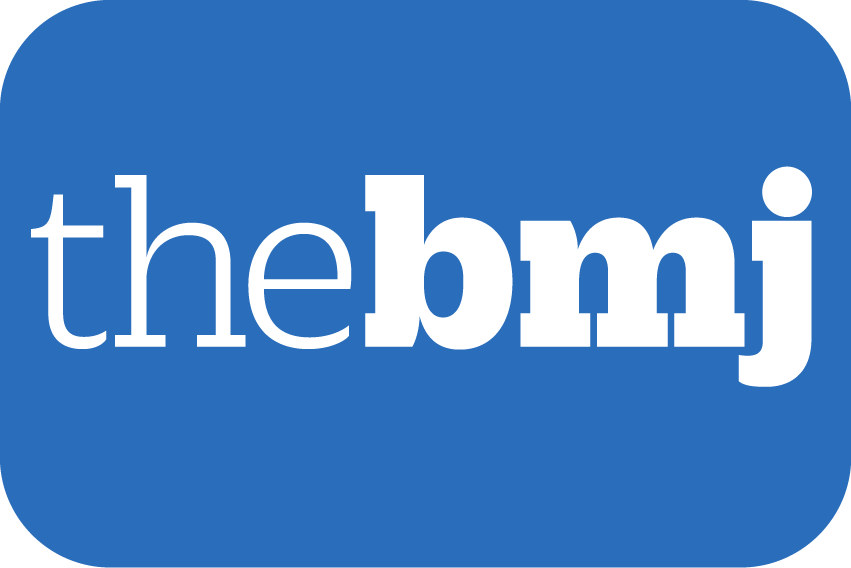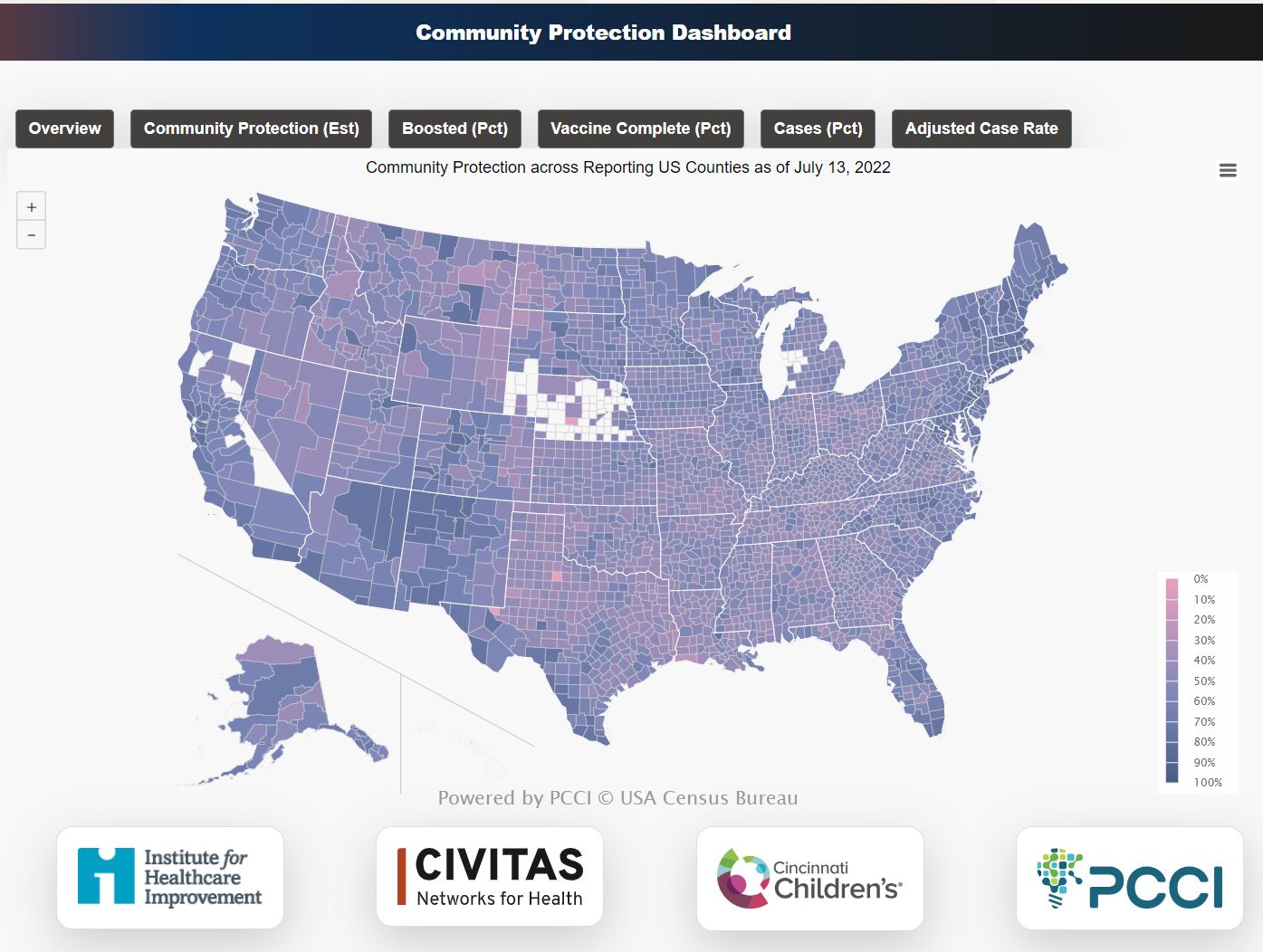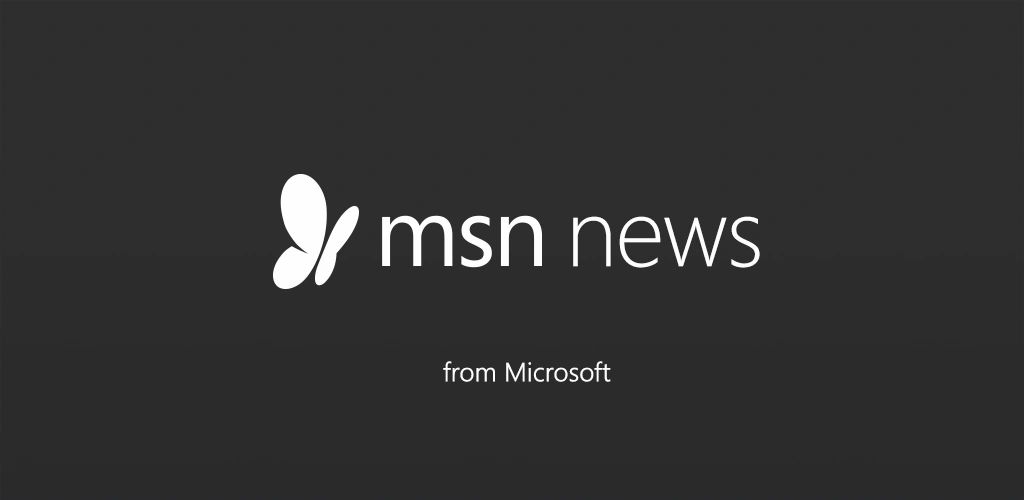Taking the Fight to COVID-19
PCCI’s data-driven approach has helped Dallas leaders make pandemic-management activities more transparent and precise through an enhanced approach to disease prevention and mitigation.
BMJ Journals: 5 Methods and tools for situational awareness and equitable decision-making during COVID-19
New COVID-19 Analytics Dashboards Unveiled by Consortium of Healthcare and Data Experts Tracks Levels of Protection Against the Virus at the County Level
Children’s COVID-19 Vaccine: A Key to Protecting Pediatric Asthma Patients
Dallas Morning News: Big data, big impact: How Dallas researchers and providers are targeting vaccines to fight COVID
DCEO Healthcare: Info Envy: Dallas County’s Public Health Data Is Among the Best in the Country
MSN News: DFW hospital beds filling up with COVID-19 patients; Delta making it harder to reach herd immunity
PCCI’S COVID-19 EFFORTS TO BEND THE CURVE IN DALLAS
PCCI, Parkland, and Dallas County Health and Human Services (DCHHS) have collaborated from the outset of the pandemic to address the multiple challenges COVID-19 has presented to care providers and the community. Our collaborative efforts centered on the following developments:
These programs and solutions included:
- Geo Mapping and Hotspotting. Uses hotspotting trends and block level information to guide testing strategies and increase awareness, messaging, and stay-safe initiatives in the community and in high-density facilities, like nursing homes.
- Capacity Forecasting Model. Leverages deployed frameworks for geocoded information and forecasts for tracking the course of the disease, with scenario mapping for Parkland hospital beds, ICU, and ventilator census; assists in planning bed capacity, staffing needs, and development of workflows.
- Proximity Index (PI). AI predictive model that empowers frontline clinical and population health teams to proactively manage high-risk patients and reduce potential spread from asymptomatic patients in hospital and community settings. Including MyPCI application for individual level engagement.
- We created the Vulnerability Index (VI) tool by geomapping data from disparate sources to identify―for proactive interventions― sub-populations who are at high risk for complications and mortality from COVID-19 and/or who harbor other NMDOH factors that place them at greater risk of infection.
- Virtual Learning Index (VLI) + School COVID Risk (SCR). AI predictive model that incorporates NMDOH to evaluate COVID risk at school. VLI is derived from a set of sub-indices incorporating NMDOH and is evaluated in the context of SCR, which reflects COVID risk, including census tract rates, mobility patterns, and outside individuals entering the school area.
- Vaccine Distribution Protocol. As a prioritization protocol, assists Parkland and Dallas County in distributing the COVID vaccine to vulnerable communities. PCCI derived the protocol using our understanding of the Dallas healthcare provider landscape and Centers for Disease Control and Prevention (CDC) recommendations.
- Herd Immunity Methodology and Prediction. Dashboard creation, including metrics and indicators, and analytics to facilitate and drive effective decision-making for county leadership regarding Dallas County COVID-19 risk and incidence.
PCCI’s advanced analytics worked to guide the local COVID-19 response that has been recognized nationally with several publications in the New England Journal of Medicine and many local and national media outlets.
Our CCC network aligning and connecting healthcare providers and community-based organizations (CBOs) across Dallas allowed us to quickly assemble data to provide geospatial analysis to help identify hotspot neighborhoods where the virus was having a disproportional impact on residents, and then turn that information into targeted communications and tactical containment efforts through community-wide awareness and education messaging and guided testing strategies. We also created a Vulnerability Index (VI) tool by geomapping data from disparate sources to identify―for proactive interventions― sub-populations who are at high risk for complications and mortality from COVID-19 and/or who harbor other NMDOH factors that place them at greater risk of infection. DCHHS, Parkland, and PCCI have also collaborated to facilitate the contact tracing process, with positive results.
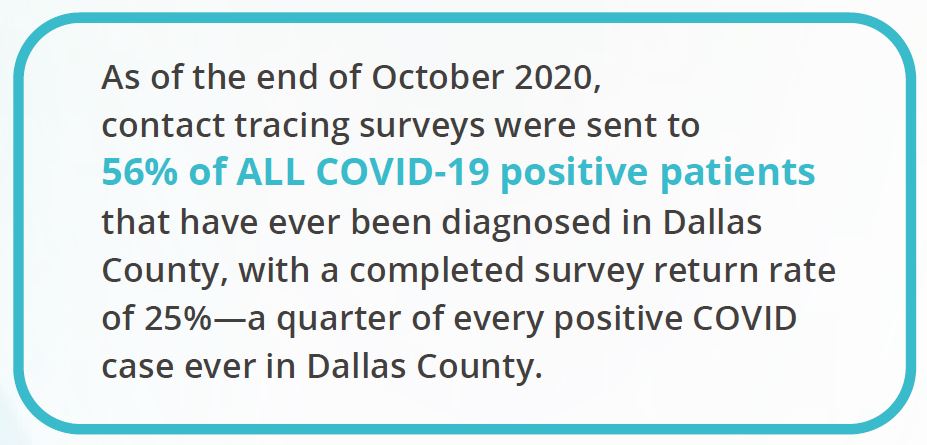
With Isthmus, the geospatial analysis for Parkland and Dallas County was hosted for regular updates, via COVID Hub website, in a record 4 weeks’ timeframe amidst the critical first COVID-19 surge in early Spring 2020.
CRITICAL RESOURCE MANAGEMENT
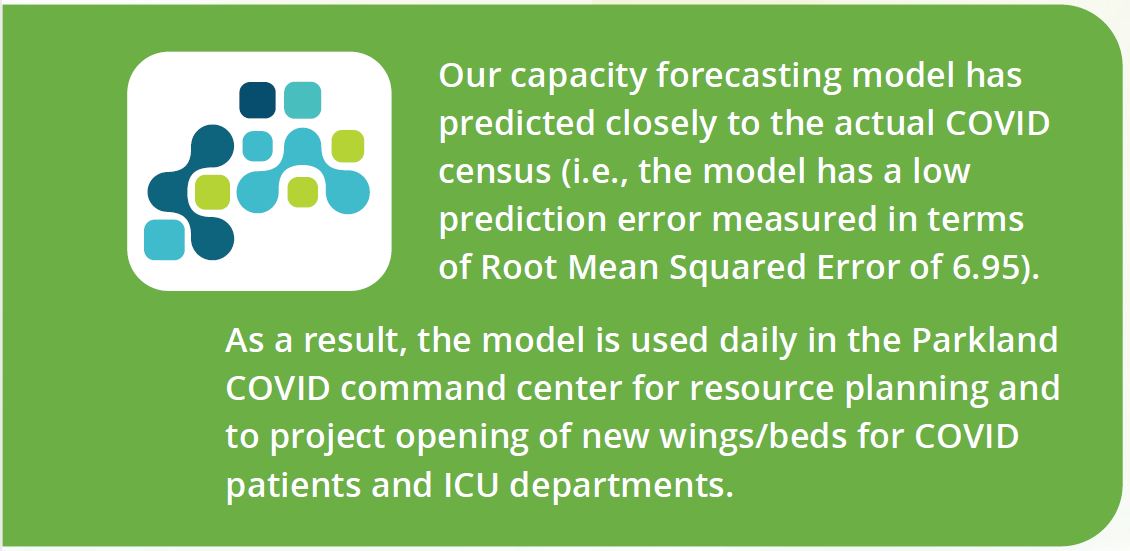
FRONTLINE SUPPORT
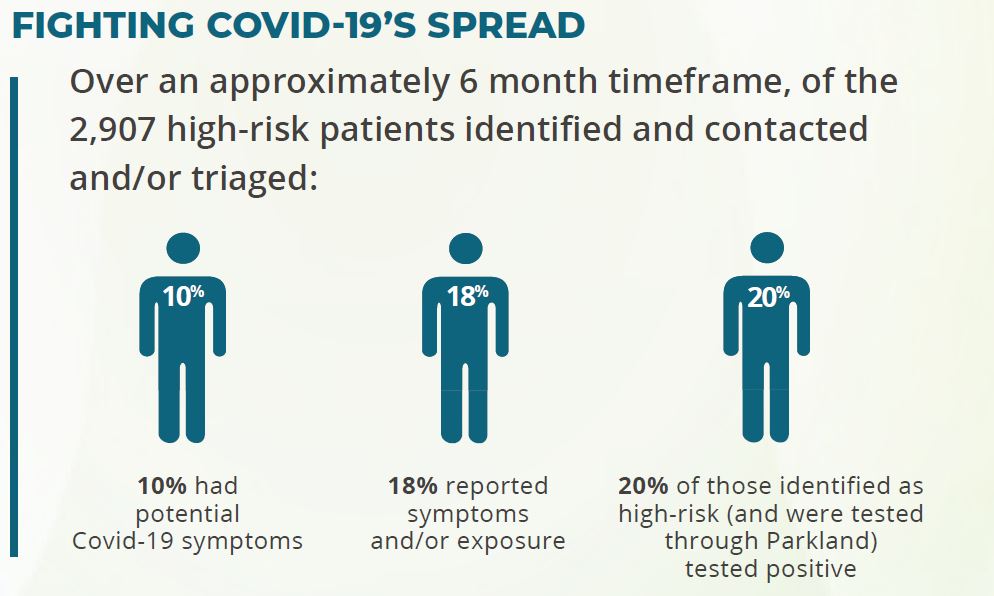
LEARN HOW WE CAN HELP YOUR COMMUNITY

